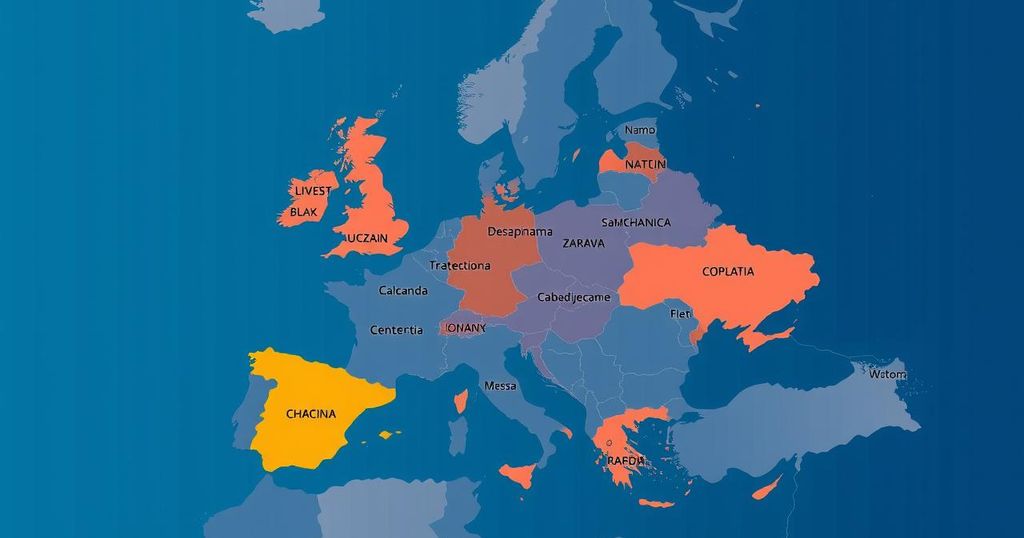The EU is pursuing potential partnerships with countries such as Uganda, Uzbekistan, and Albania to address the needs of unwanted migrants and implement return hubs akin to a previous UK plan. This strategy arises in response to increasing anti-immigration sentiment among member states and involves navigating complex legal and ethical challenges related to human rights. Discussions about temporary suspension of asylum rights and operationalizing new asylum processing methods signify a substantial policy shift in the EU’s approach to migration.
The European Union (EU) is actively seeking countries willing to accommodate migrants who are deemed unwanted as part of its strategies to address the ongoing challenges related to asylum seekers. During a recent summit, EU leaders endorsed a shift towards exploring “return hubs,” a concept reminiscent of a previous British initiative aimed at transferring failed asylum seekers to Rwanda. Additional proposals include the potential relocation of individuals granted asylum to designated safe third countries. In light of rising anti-immigration sentiments following significant electoral victories for right-wing parties in several member states, including Austria, Germany, and the Netherlands, the EU is undertaking discussions to facilitate the temporary suspension of the right to asylum; Poland’s Prime Minister Donald Tusk has emerged as a prominent advocate of these measures in response to border influxes from Belarus. Despite the consensus on the need for new migration policies, significant legal and ethical concerns surround the establishment of return hubs, particularly regarding human rights obligations. The EU has not yet finalized a location for these hubs, but Uganda has been suggested by Dutch Prime Minister Dick Schoof as a site for hosting migrants denied asylum in Europe. Italy, meanwhile, has proposed sending certain refugees back to Syria, and discussions are ongoing concerning Uzbekistan’s potential role in accepting deported individuals from Europe. At present, the EU faces challenges meeting legal criteria for deportation, particularly regarding countries with human rights issues, as evidenced by Morocco and Tunisia’s exclusion from the list of safe third nations. Albania’s new pilot scheme, which intends to manage asylum claims for migrants within its territory, has already encountered operational difficulties. The EU remains committed to enforcing its asylum laws, highlighting the right to seek refuge even amidst discussions of stricter immigration policies and summary processing at the borders. As the bloc seeks sustainable solutions to the migration crisis, these developments underscore a complex balance between humanitarian responsibilities and border security enforcement.
The EU is currently navigating a challenging migration landscape marked by increasing anti-immigrant sentiment and pressures to reform asylum policies. Following significant electoral gains by right-wing parties in member states, the EU has recognized the need to reassess its approach to managing asylum claims and accommodating migrants. Discussions are now focusing on innovative solutions, such as return hubs and partnerships with third countries, to facilitate the processing and potential deportation of asylum seekers. Legal and ethical dilemmas surrounding human rights obligations present formidable challenges as the EU endeavours to implement these new policies.
In conclusion, the EU’s exploration of return hubs and collaboration with third countries signals a significant shift in its migration policy, motivated by rising anti-immigration sentiments among member states. While recognizing the importance of humanitarian standards and the right to asylum, the bloc is grappling with complex legalities surrounding deportation and the ethical implications of relying on countries with questionable human rights records. The success of these initiatives will ultimately depend on thoughtful negotiation and the maintenance of fundamental human rights guarantees.
Original Source: www.thenationalnews.com






